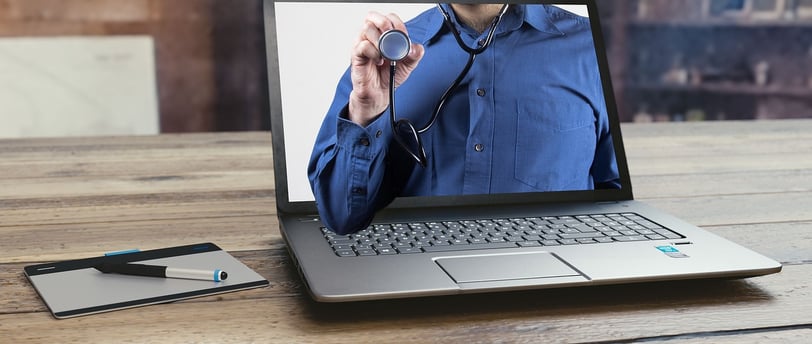5G in Healthcare
Learn how 5G is revolutionizing the healthcare industry, enabling real-time remote monitoring, telemedicine, and improved connectivity for medical devices. Discover the potential of 5G to enhance patient care and improve healthcare outcomes.
Brian C. Newman
9/5/20232 min read


Transforming Patient Care
The advent of 5G technology is not just a milestone for the telecommunications industry; it has far-reaching implications for various sectors, including healthcare. With enhanced speed, reduced latency, and the ability to connect more devices simultaneously, 5G is set to redefine how healthcare services are delivered and consumed. This blog post delves into the transformational role 5G plays in healthcare, specifically in remote patient monitoring, telemedicine, and other advanced applications.
Remote Monitoring: A Leap Forward
Real-time Data Transmission
5G's high speed and low latency allow for real-time data transmission, making remote patient monitoring more effective and reliable. Medical professionals can track vitals such as heart rate, blood pressure, and glucose levels in real-time, enabling timely interventions and better management of chronic conditions.
The IoT Ecosystem
The Internet of Things (IoT) in healthcare is another domain that stands to gain immensely from 5G connectivity. Advanced wearables and sensors can collect and transmit massive amounts of data with minimal delays, providing a more comprehensive understanding of a patient’s health status.
Telemedicine: Closing the Gap
Video Consultations
Traditional telemedicine often suffers from laggy connections, hindering the consultation experience. 5G can easily handle high-definition video streaming, thereby enhancing the quality of remote consultations. This is invaluable when specialists need to give immediate advice on critical cases.
Remote Surgeries
Perhaps the most groundbreaking application is the feasibility of remote surgeries. Low latency and high-speed data transmission allow surgeons to operate remotely using robotic arms, potentially revolutionizing surgical interventions.
Additional Applications
Hospital Operations
From administrative tasks to patient care, 5G can streamline hospital operations. High-speed data transfer will make Electronic Health Records (EHRs) more efficient, and the interconnectivity of medical devices will provide an integrated healthcare delivery system.
Emergency Response
5G could substantially improve emergency healthcare services. The technology allows real-time data sharing between ambulance crews and hospitals, ensuring immediate medical care during the crucial "golden hour."
Conclusion
The healthcare sector is poised for a significant transformation, thanks to 5G technology. By enabling real-time remote monitoring, enhancing telemedicine, and laying the groundwork for other advanced applications, 5G is bringing us closer to a future where healthcare is more accessible, efficient, and effective.
The transformative power of 5G in healthcare is a promising sign for medical professionals and patients, offering a glimpse into the future of integrated, technologically advanced healthcare systems.
By embracing this technological leap, we can move towards a healthcare ecosystem that is more aligned with the dynamic needs of the 21st century.
If you found this information valuable, don't forget to subscribe to my YouTube channel or newsletter for more insights on cutting-edge 5G technologies and their impact on our world. Also, check out my training courses to help you learn more about 5G and cloud computing.
